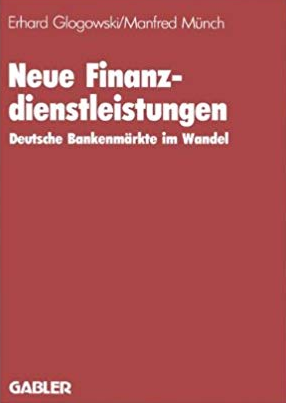I’d like to share with readers an old letter from Rossdorf in Germany by a Dr. Erhard Glogowski. The reader feedback was dated May 13, 2008 and I featured it a month later in my weekly “English Plain and Simple” column. Two weeks ago, I chanced upon that letter among my desktop files as I was finalizing the manuscript for
Bridging the English Divide, my fourth English-usage book that I’m publishing very soon.
Until then I didn’t know and had never bothered to check who that German letter-writer was, but my interest got piqued and I made a Google search. To my surprise, Dr. Glogowski turns out to be a banking and finance expert who has written several books, among them the 1986
Neue Finanzdienstleistungen: Deutsche Bankenmärkte im Wandel, which translates to “New Financial Services: German Banking Markets in Transition.”
 Here’s Dr. Glogowski’s verbatim letter in full:
Here’s Dr. Glogowski’s verbatim letter in full:Dear Mr. Carillo,
For many years now, I have been a frequent reader of your language column and I am stunned by your profound knowledge of the English language. I highly appreciate your book
English Plain and Simple and I collect your articles that are published weekly in
The Manila Times.
Nonetheless, I would like to mention a topic that I think you have not yet thoroughly elaborated on. It is the ample field of synonyms and pleonasms. In your book, you devoted to synonyms barely one page (p. 277), and you took up the subject only briefly as part of your column No. 317. I must admit, though, that my collection of your articles is far from complete. Also, in spite of my poor understanding of English idioms, I think the title of your book seems faulty and is likely to be misunderstood.
I have consulted several dictionaries, among them the
Oxford Advanced Learner’s Dictionary of Current English by A.S. Hornby (Oxford University Press: 1974), and I found that the expression “plain” is congruent to “simple.” There is therefore no difference between these two sentences: “The student’s English is plain.” “The student’s English is simple.” The words “plain” and “simple” mean the same thing, so to use both in the same phrase is pure pleonasm. And by doing this, you missed to “kill” one adjective, contrary to Mark Twain’s strong admonition against it (“When you catch an adjective, kill it.”).
Please don’t take offense at my comments and, if you can find the time, do enlighten me on the proper use of synonyms.
My reply to Dr. Glogowski: Thank you for the compliment about my English-usage columns and my first book
English Plain and Simple. It warms my heart to know that even English users outside my country are finding my work of some use in their quest to improve their English.
Yes, there are some obvious overlaps in the meanings of the words “plain” and “simple,” but I don’t think my use of both for my book’s title constitutes a pleonasm. A
pleonasm is the use of more words than necessary to convey the same sense, as in “a
lovely and
beautiful woman” and “the
rich and
wealthy businessman.” They are pleonasms because the adjective pairs “lovely” and “beautiful” and “rich” and “wealthy” are each practically exact synonyms.
The adjectives “plain” and “simple” may look synonymous as well, but they have many different shades of meaning. For my book’s title, I used “plain” to mean uncomplicated and uncluttered, and “simple” to mean clear and easy to understand, so their joint use in modifying “English” doesn’t constitute a pleonasm but simply an emphatic expression.
I’m by no means offended by your comments, Dr. Glogowski. Rather, I appreciate them for opening my eyes to other aspects of English that I still need to write about to help learners use the language better.
THE BOOK’S 2008 EDITION AND A LATTER-DAY FORMAT OF MY ENGLISH-USAGE COLUMN
(Next:
Options for avoiding officious subjunctive sentences) December 27, 2018)
This essay, 1,123rd of the series, appeared in the column “English Plain and Simple” by Jose A. Carillo in the Campus Press section of the December 20, 2018 print edition of The Manila Times
, © 2018 by the Manila Times Publishing Corp. All rights reserved.